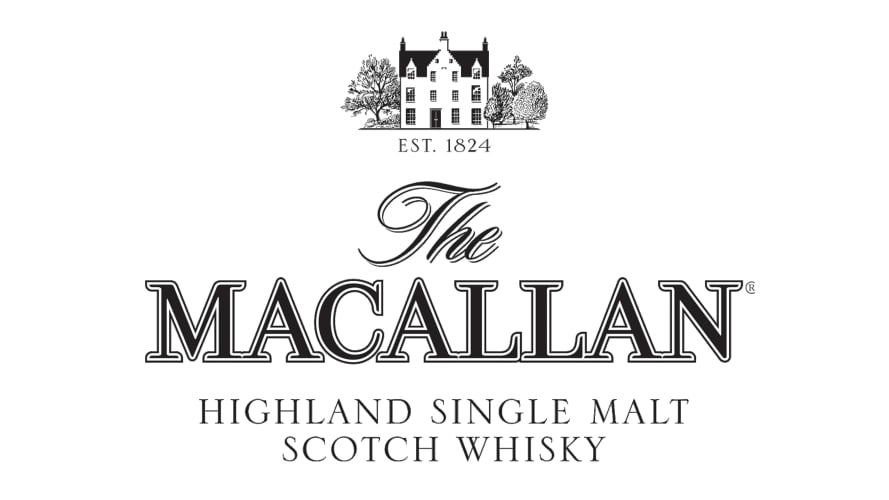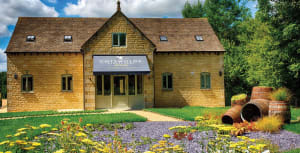Sustainability - What Is It?
What is whisky sustainability and why has it become such an important topic to discuss? To understand whisky sustainability let's first look at the pure meaning of the word in context to the environment.
Sustainability: is the avoidance of the depletion of natural resources in order to maintain an ecological balance.
Whisky sustainability is exactly that but specifically in regards to the different resources that go into producing beautiful and delicious whisky. There are four main components that go into making whisky at least in regards to sustainability. Those are:
- Climate
- Land
- Water
- Packaging
Climate
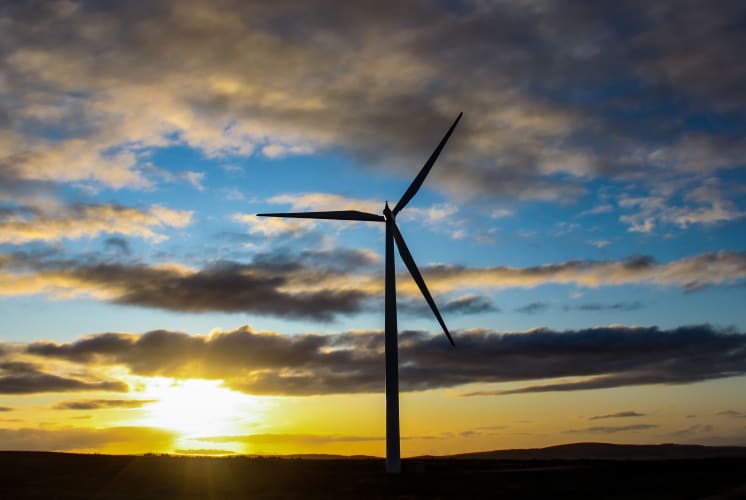
A greatly discussed topic this and rightfully so. This issue affects us all on this planet and it is every person and businesses responsibility to take action. The goal here is to reach Net Zero emissions by 2040. In order to achieve this carbon emissions will need to be greatly reduced. Carbon emissions are generated from human activities like burning fossil fuels: coal, oil, and natural gas as well as electricity generation and transportation. The main source of carbon emission with regard to the whisky industry comes from generating heat for distillation. In order to combat this the industry is exploring different technologies such as anaerobic digestion, biomass, hydrogen, and high temperature heat pumps.
Land
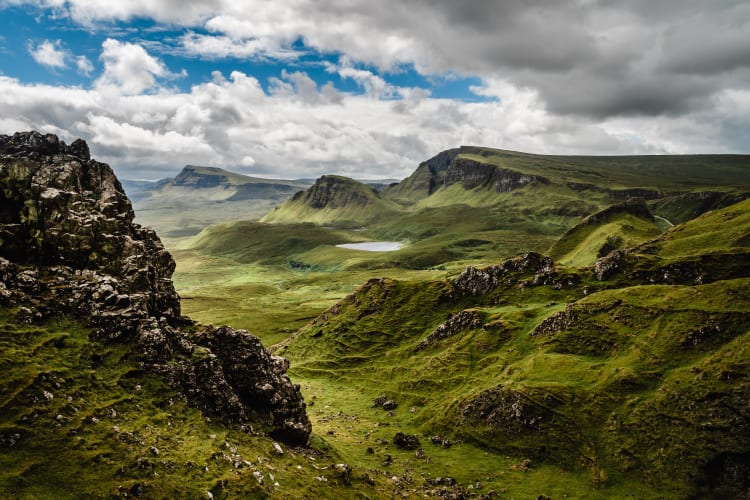
Each distillery is unique in that it draws heavily from the land it is on, from its water source to the air - its surrounding landscape impacts the whisky itself. In addition, a core ingredient of whisky (if not the core ingredient) is barley which obviously grows in the ground and can drastically alter the flavor of the whisky. Emissions from agriculture are some of the hardest to reduce. So it is critical that the whisky community works hand in hand with barley farmers to work towards Net Zero. Lastly, let's talk about peat. Peat is the clumping of partially decayed vegetation or organic matter. While not every distillery uses peat to dry their barley it is a major environmental challenge in Scotland. The issue is twofold, firstly peatlands act as a sponge for carbon emissions and digging it removes that sponge. Secondly in order to dig it up we use machines and heavy equipment which emit more carbon into the atmosphere. In order to combat these two issues the whisky industry is creating programs to restore Scotland's peatlands and reduce the emissions from extracting the peat. This is most admirable as the whisky industry only uses about 1% of Scotland's peat consumption, so being at the forefront of this project shows the dedication and commitment the industry has to helping the world. And one last thing to note is that many distilleries have projects to protect vast tracts of land either the land which the distillery sits on or nearby lands that are critical to maintaining the delicate balance of nature and human activity.
Water
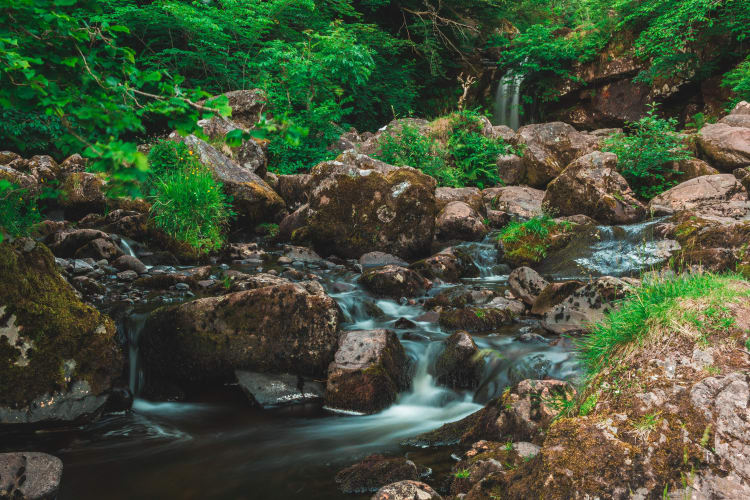
Second to barley the water is critical in making Scotch and again can impact the flavor. The word whisky even originates from the Gaelic ‘uisge beath’, which means water of life. Each distillery has its own water source which they use to produce their whisky. The goals around water are to reduce water usage, as well as preserve and even improve the water sources that are used and clean up other water areas that are important to the landscape and that delicate balance we keep mentioning.
Packaging

The last subject that hasn’t been talked about yet, is packaging. We have all seen pictures of our oceans and landfills filled with plastics and other materials that don’t compost. The images of animals killed, environments and habitats destroyed are something out of a horror film. The whisky industry is moving towards all reusable, recyclable or compostable packaging. While talking about recycling it's worth mentioning that many distilleries already reuse spent grain for animal feed and renewable energy production.
Sustainable Distilleries
Even as the whole industry is working to be more environmentally friendly and sustainable there are a few outstanding distillers that are just doing a fantastic job of moving towards Net Zero.
Nc'nean Distillery

Nc'nean is now officially verified as net zero carbon emissions from their own distillery operations. They achieved this through using 100% renewable energy. They have two copper pot stills which are powered solely by a biomass boiler using wood chips from the local forest for its power; all the trees that are harvested are replanted. Their carbon footprint is a tiny 25.7 tonnes of CO2 per annum. In their words that is less than one return plane journey from London to New York. Lastly they have partnered with Highland Carbon to offset our remaining few carbon emissions. We do this via a sustainable forest planting project.
Ardnamurchan Distillery
One of the most remote distilleries in Scotland is Ardnamurchan. Found on the most westerly peninsula of the British mainland Ardnamurchan has been dubbed “Scotland’s Greenest Distillery”. Ardnamurchan’s approach to sustainability is a straightforward one. By looking at whisky as a ‘natural product’, the methods of its production should be just as natural. All of Ardnamurchan’s heat and power comes from local renewables: a biomass boiler fuelled by woodchip from local forestry, and hydroelectricity gathered from a nearby river, which also provides the distillery’s cooling water. Their packaging is made from 100% recycled material and to avoid waste, the excess byproduct from the whisky production is used to produce feed for animals in the area.
View the Ardnamurchan Collection
Arbikie Distillery

In the distillery, since day one, sustainability was a fundamental element of our business plan. The distillery was built with sustainability in mind; having photovoltaic panels on the roof and our distillation co-products being returned to our fields as natural fertilizers or being fed to our highland cattle. The cows are referred to as 'recyclers' as they are a vital component in regenerative farming and our natural environment, recycling our spent distilling grains to enrich our farmlands. In addition since opening in 2014, they have been working on establishing a number of juniper plantations across their estate, planting approximately 1000 plants a year.
The Macallan Distillery
The Macallan, possibly the most well known name in Scotch. Along with that recognition comes responsibility for they are in the spotlight of the industry. They have done well in setting an example for other distilleries to follow by achieving exceptional water and energy efficiency rates. Natural by-products from their distillation process are repurposed, and 80% of their energy comes from renewable and non-fossil fuel sources, with targets to be fully carbon neutral by 2030. In addition, they have worked with a quiet dedication to evolve packaging and material- sourcing principles that will minimize their environmental impact and make the recycling of their distinctive packaging as seamless as possible for the consumer.
View the Macallan Collection
If there is one big takeaway that you should walk away with is that more industries need to follow suit and work to make changes as a whole and not just as individual businesses.
To find out even more about this project check out the Scotch Whisky Association (SWA)
Lastly shout out to the Whisky Magazine for inspiring me and educating me a bit more about this subject in issue 178. Keep doing what you do!


